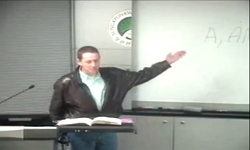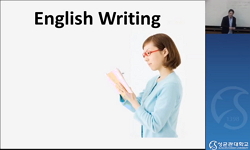The purpose of this study was to investigate the effects of different types of error-correction feedback on Korean middle school students’ writing. Twenty-four advanced level of first grade middle school students were chosen. The subjects were rando...
http://chineseinput.net/에서 pinyin(병음)방식으로 중국어를 변환할 수 있습니다.
변환된 중국어를 복사하여 사용하시면 됩니다.
- 中文 을 입력하시려면 zhongwen을 입력하시고 space를누르시면됩니다.
- 北京 을 입력하시려면 beijing을 입력하시고 space를 누르시면 됩니다.

오류수정 피드백 유형이 한국 중학교 학습자들의 개작 활동에 미치는 영향 = The effects of different types of error feedback on writing revision of Korean middle school students
한글로보기https://www.riss.kr/link?id=A104926515
- 저자
- 발행기관
- 학술지명
- 권호사항
-
발행연도
2012
-
작성언어
Korean
-
주제어
English writing ; error feedback ; electronic feedback ; written feedback ; revision ; 쓰기 ; 오류 피드백 ; 전자피드백 ; 쓰기피드백 ; 수정
-
등재정보
KCI등재
-
자료형태
학술저널
-
수록면
235-262(28쪽)
-
KCI 피인용횟수
4
- 제공처
-
0
상세조회 -
0
다운로드
부가정보
다국어 초록 (Multilingual Abstract)
The purpose of this study was to investigate the effects of different types of error-correction feedback on Korean middle school students’ writing. Twenty-four advanced level of first grade middle school students were chosen. The subjects were randomly divided into three groups and performed three consecutive composition tasks. All of three different types of feedback, electronic feedback, conference and written feedback, were provided for each group in a different order. The effects of different types of feedback were measured by comparing the rate of errors produced and corrected between the first and revised draft. In pre and post writing test, students showed great improvement in the number of words produced, but the number of errors in two tests did not differ, implying no improvement of their writing accuracy. Further, the teacher’s feedback on errors had positive effects on students’ revision activity. Students made correct revisions about 60% to 70% of their first errors in their revised writing. Yet, the type of feedback provided and the tasks assigned did not have any relationship with the correction activities. Further classroom implications are suggested based on the study results.
참고문헌 (Reference)
1 서울특별시교육청, "초3부터 서술형 평가 확대, 학생부에 창의적 교과활동 기재: 서울 창의성 계발을 위한 평가 개선 기본 계획발표" 서울특별시 교육청 2010
2 전은경, "영어 저널쓰기에서 교사의 피드백 유형이 학습자의 쓰기능력 신장에 미치는 영향" 팬코리아영어교육학회 21 (21): 293-313, 2009
3 김나연, "대학에서의 영어 말하기 오류수정 피드백과 학습자 반응: 교사와 학습자의 태도를 중심으로" 한국영어어문교육학회 15 (15): 237-264, 2009
4 이정원, "과정중심 피드백이 영어 쓰기능력 향상에 미치는 영향" 56 (56): 265-285, 2001
5 Krashen, S. D, "Writing: Research, theory, and application" Pergamon Press 1984
6 Soh, Y. H, "Writing communicatively" 50 : 97-116, 1995
7 Bates, L, "Writing clearly: Responding to ESL compositions" Heinle & Heinle 1993
8 Ferris, D. R, "Was Truscott right? New evidence on the effects of error correction in L2 writing classes" 2000
9 Williams, J, "Undergraduate second language writers in the writing center" 21 : 73-91, 2002
10 Sheppard, K, "Two feedback types: Do they make a difference?" 23 : 103-110, 1992
1 서울특별시교육청, "초3부터 서술형 평가 확대, 학생부에 창의적 교과활동 기재: 서울 창의성 계발을 위한 평가 개선 기본 계획발표" 서울특별시 교육청 2010
2 전은경, "영어 저널쓰기에서 교사의 피드백 유형이 학습자의 쓰기능력 신장에 미치는 영향" 팬코리아영어교육학회 21 (21): 293-313, 2009
3 김나연, "대학에서의 영어 말하기 오류수정 피드백과 학습자 반응: 교사와 학습자의 태도를 중심으로" 한국영어어문교육학회 15 (15): 237-264, 2009
4 이정원, "과정중심 피드백이 영어 쓰기능력 향상에 미치는 영향" 56 (56): 265-285, 2001
5 Krashen, S. D, "Writing: Research, theory, and application" Pergamon Press 1984
6 Soh, Y. H, "Writing communicatively" 50 : 97-116, 1995
7 Bates, L, "Writing clearly: Responding to ESL compositions" Heinle & Heinle 1993
8 Ferris, D. R, "Was Truscott right? New evidence on the effects of error correction in L2 writing classes" 2000
9 Williams, J, "Undergraduate second language writers in the writing center" 21 : 73-91, 2002
10 Sheppard, K, "Two feedback types: Do they make a difference?" 23 : 103-110, 1992
11 Cohen, A, "Toward assessing interlanguage performance: The relationship between selected errors, learning characteristics, and learners’ expectations" 26 : 45-66, 1976
12 Ferris, D. R, "The ‘‘rammar correction’’debate in L2 Writing: Where are we, and where do we go from here? (and what do we do in the meantime?)" 13 : 49-62, 2004
13 Higgs, T, "The push toward communication. In T. Higgs(Ed. ), Curriculum, competence, and the foreign language teacher(pp. 57-79). Skokie, In The push toward communication, In Curriculum, competence, and the foreign language teacher" National Textbook Company 57-79, 1982
14 Leki, I, "The preferences of ESL students for error correction in college‐level writing classes" 45 : 605-655, 1991
15 Chandler, J, "The efficacy of various kinds of error feedback for improvement in the accuracy and fluency of L2 student writing" 12 : 267-296, 2003
16 Semke, H, "The effects of the red pen" 17 : 195-202, 1984
17 Bitchener, J, "The effect of different types of corrective feedback on ESL student writing" 14 : 191-205, 2005
18 Ferris, D. R, "The case for grammar correction in L2 writing classes: A response to Truscott" 8 (8): 1-11, 1996
19 Truscott, J, "The case against grammar correction in L2 writing classes" 46 : 327-369, 1996
20 Brown, H. D, "Teaching by principle an interactive approach to language pedagogy" Pearson Education 2001
21 Ferris, D. R, "Teaching ESL composition students to become independent self‐editors" 4 (4): 18-22, 1995
22 Hyland, F, "Sugaring the pill: Praise and criticism in written feedback" 10 (10): 185-212, 2001
23 Ferris, D. R, "Student reactions to teacher response in multiple‐draft compositionclassrooms" 29 : 33-53, 1995
24 Cook, V. J, "Second language learning and language teaching" Edward Arnold 1991
25 Zamel, V, "Responding to student writing" 18 : 79-102, 1985
26 Lalande, J. F. II, "Reducing composition errors: An experiment" 66 : 140-149, 1982
27 Selinker, L, "Rediscovering interlanguage" Longman 1992
28 Brunton, A, "Improving accuracy is not the only reason for writing, and even if it were" 37 : 600-613, 2009
29 Ferris, D. R, "How does teacher feedback affect student revision? A pilot comparison between ESL and NES writing teachers and their students" 1998
30 Hedgecock, J, "Feedback on feedback: Assessing learner receptivity in second language writing" 3 : 141-163, 1994
31 Cohen, A, "Feedback on compositions: Teacher and student verbal reports, In Second language writing: Research insights for the classroom" Cambridge University Press 155-177, 1990
32 Ferris, D. R, "Error feedback in L2 writing classes: How explicit does it need to be?" 10 : 161-184, 2001
33 Hendrickson, J. M, "Error correction in foreign language teaching: Recent theory, research, and practice" 62 : 387-398, 1978
34 Corder, S. P, "Error analysis and interlanguage" Oxford University Press 1981
35 Hyland, F, "ESL writers and feedback: Giving more autonomy to students" 4 : 33-54, 2000
36 Conrad, S, "ESL student and revision after teacher written comments: Texts, contexts and individuals" 8 : 147-180, 1999
37 Olshtain, E, "Discourse and context in language teaching: A guide for language teachers" Cambridge University Express 2007
38 Warschauer, M, "Computer learning networks and student empowerment" 24 (24): 1-14, 1996
39 Leki, I, "Coaching from the margins: Issues in written response, In Second language writing" Cambridge University Press 57-68, 1990
40 Segalowitz, S. J, "Assessing the development of automaticity in second language word recognition" 19 : 53-67, 1998
동일학술지(권/호) 다른 논문
-
- 현대영어교육학회
- 심영숙
- 2012
- KCI등재
-
과목 이수 후 영어 듣기 장애 요소와 전략에 관한 학습자의 인식 변화
- 현대영어교육학회
- 신희재
- 2012
- KCI등재
-
- 현대영어교육학회
- 임정완
- 2012
- KCI등재
-
- 현대영어교육학회
- 윤지환
- 2012
- KCI등재
분석정보
인용정보 인용지수 설명보기
학술지 이력
| 연월일 | 이력구분 | 이력상세 | 등재구분 |
|---|---|---|---|
| 2022 | 평가예정 | 재인증평가 신청대상 (재인증) | |
| 2019-01-01 | 평가 | 등재학술지 유지 (계속평가) |  |
| 2016-01-01 | 평가 | 등재학술지 유지 (계속평가) |  |
| 2012-01-01 | 평가 | 등재학술지 유지 (등재유지) |  |
| 2009-01-01 | 평가 | 등재학술지 선정 (등재후보2차) |  |
| 2008-01-01 | 평가 | 등재후보 1차 PASS (등재후보1차) |  |
| 2006-01-01 | 평가 | 등재후보학술지 선정 (신규평가) |  |
학술지 인용정보
| 기준연도 | WOS-KCI 통합IF(2년) | KCIF(2년) | KCIF(3년) |
|---|---|---|---|
| 2016 | 0.53 | 0.53 | 0.6 |
| KCIF(4년) | KCIF(5년) | 중심성지수(3년) | 즉시성지수 |
| 0.6 | 0.64 | 0.983 | 0.16 |




 KCI
KCI 스콜라
스콜라






